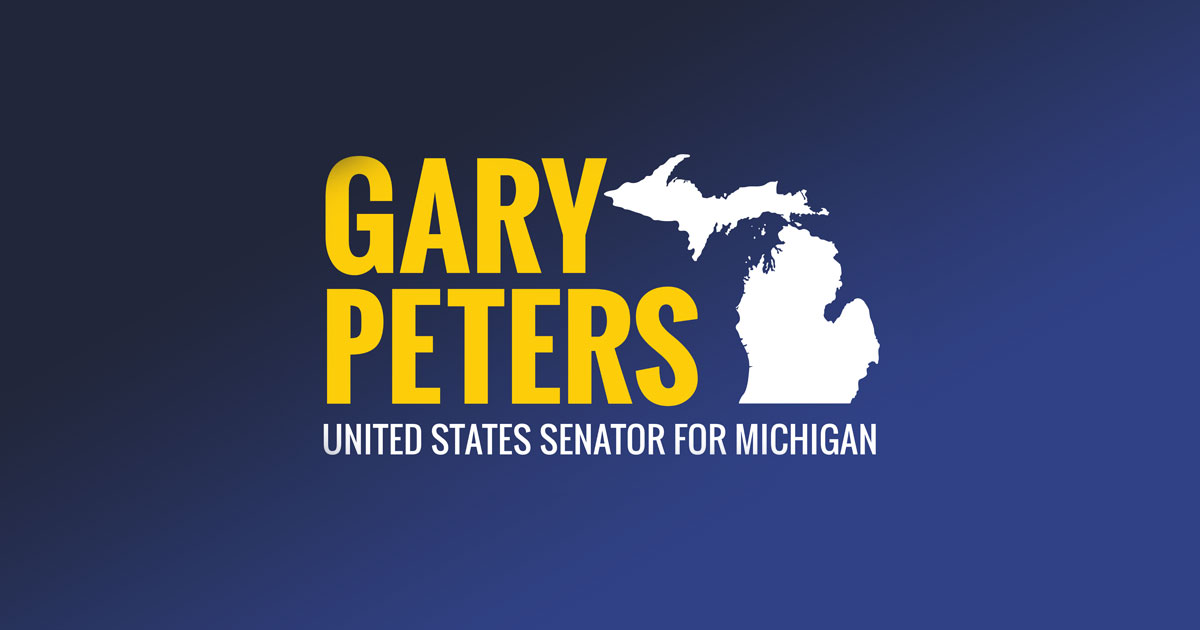Source: United States Senator for Michigan Gary Peters
10.01.21
WASHINGTON, DC – U.S. Senator Gary Peters (MI)’s bipartisan legislation to revamp the Manufacturing.gov website, which would serve as a one-stop hub to connect manufacturers with federal manufacturing programs and resources, passed the U.S. Senate late last night in advance of Manufacturing Day today. The bill, which Peters introduced with U.S. Senators Todd Young (R-IN) and Marco Rubio (R-FL), would also require the Department of Commerce to enable the website to collect feedback from manufacturers, address frequently asked questions, and provide other helpful information. The bill’s passage comes after a 2017 report from the U.S. Government Accountability Office found that the federal government maintains 58 different manufacturing programs across 11 federal agencies, which can make it difficult for manufacturers to identify them.
“There’s no question we can take steps to boost domestic manufacturing, and I have heard from Michigan manufacturers about how difficult it is for them to navigate what federal resources are available to them,” said Senator Peters, member of the Senate Commerce, Science, and Transportation Committee. “I’m pleased my commonsense, bipartisan bill to establish a one-stop hub that will connect manufacturers in Michigan and across the country with federal manufacturing programs has passed the Senate. This website will make it easier for manufacturers — the overwhelming number of which are small businesses — to seek out federal resources and support that can help them grow and succeed.”
“Earlier this year, Senator Peters and I introduced the Manufacturing.gov Act to establish a single hub for information and questions relating to federal manufacturing programs,” said Senator Young. “I applaud Senate passage of the bill, which moves Manufacturing.gov one step closer to helping over 540,000 Hoosier manufacturing employees.”
“The last 18 months have shown how critical it is to bolster our country’s manufacturing base,” said Senator Rubio. “Supply chain interruptions have left American consumers dealing with price hikes and long waits to buy goods at the hardware store, the supermarket, and beyond. Being able to make things in America is a national and economic security imperative, and I urge the House to pass this bill quickly.”
Peters has made strengthening domestic manufacturing a top priority. He championed a provision included in the Senate-passed bipartisan infrastructure bill that passed in August to strengthen Buy American requirements and close loopholes to ensure that the federal government is spending taxpayer dollars on American-made products that support American companies and workers, and create American jobs. He also led efforts that passed in June as part of the U.S. Innovation and Competition Act to promote domestic production of personal protective equipment and strengthen the Manufacturing Extension Partnership to boost small- and medium-sized manufacturers. Peters also secured funding in the bill to expand domestic production of mature semiconductor chips. The shortage of these semiconductors resulted in massive supply chain disruptions and idled auto plants across the country – including in Michigan. The competitiveness bill also included Peters’ bipartisan legislation with Rubio to revive and elevate the National Manufacturing Advisory Council. The Council advises the federal government on manufacturing programs and provides private sector guidance and insight to the federal government, but it has only met intermittently in recent years. Peters’ legislation would revive and elevate the Council, establishing it as a critical component in federal manufacturing policy and strategy.
Well before the pandemic reinforced the urgent need for the U.S. to bolster American manufacturing and supply chains, Peters proposed creating a National Institute of Manufacturing in 2019 to better address both short-term supply chain issues and longer-term problems related to a lack of a national manufacturing strategy. He put forward legislation in 2020 and reintroduced that bill earlier this year.
Today, Peters released a video commemorating Manufacturing Day, which is today October 1st, to recognize Michigan manufacturers and workers.
###
